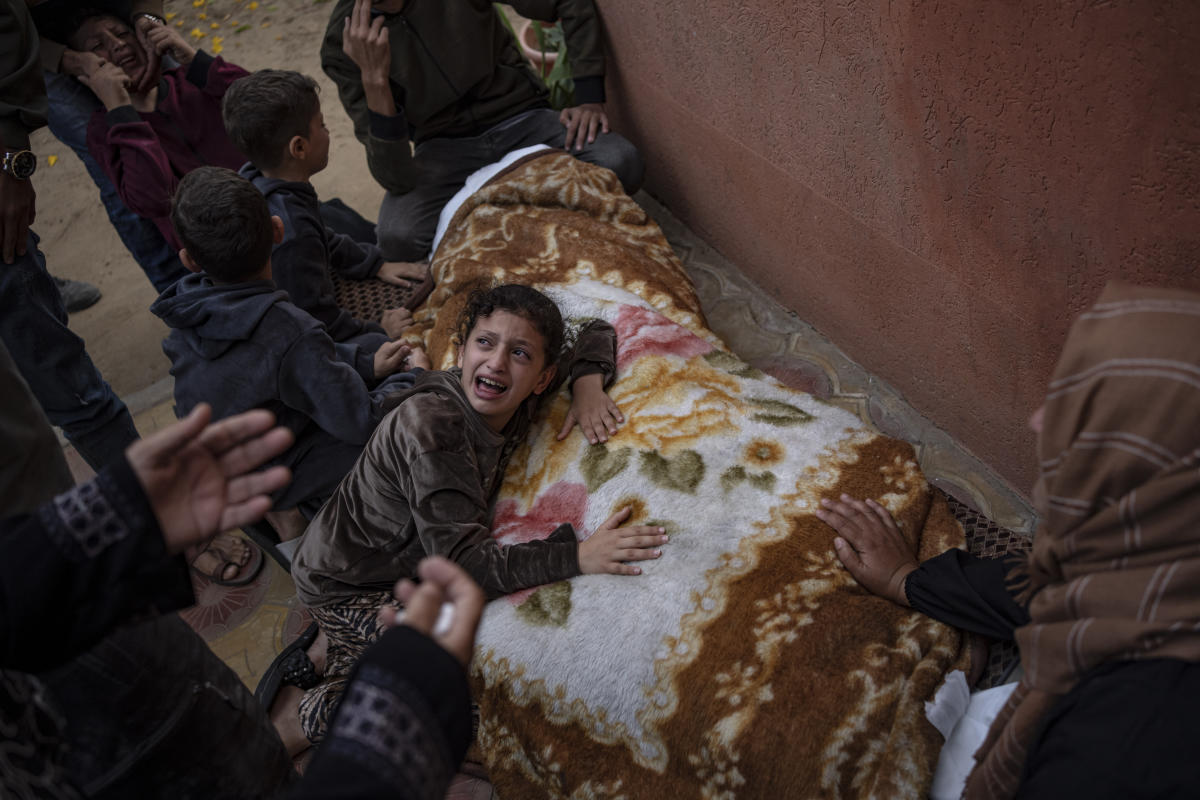Deir al-Balah, Gaza Strip (AP) — Prime Minister Benjamin Netanyahu of Israel has rejected the growing international calls for a cease-fire, vowing to continue the fight against Gaza’s ruling Hamas militants at “full force.” Netanyahu has stated that a cease-fire can only be possible if all 239 hostages held by militants in Gaza are released.
He announced that Gaza would be demilitarized and that Israel would retain security control there after the war. He also emphasized that Israeli forces must be able to enter Gaza freely to hunt down militants.
Netanyahu’s positions run contrary to the post-war scenarios proposed by the United States, a key ally of Israel. The U.S. Secretary of State has expressed opposition to an Israeli reoccupation of Gaza and envisions a unified Palestinian government in both Gaza and the West Bank, at some point leading to Palestinian statehood.
Netanyahu and Israeli military leaders have emphasized that the ongoing battle against Hamas is aimed at achieving a decisive victory, and that there is no alternative to the mission’s success. Pressure is mounting on Israel as civilian casualties increase and medical facilities struggle amid the fighting.
The situation has escalated near Shifa and other hospitals in northern Gaza, where supplies have run out, and fighting has intensified. The Israeli military has alleged that Hamas has been using hospitals as command posts and has been shielding fighters with civilians, leading to concerns about the safety of patients and medical staff.
As the war continues, international concerns are growing, and calls for an immediate cease-fire and the delivery of humanitarian aid have intensified. Muslim and Arab leaders in Saudi Arabia have issued a communique calling for an end to the conflict in Gaza and urged the International Court of Justice to investigate Israel’s attacks.
Meanwhile, the Palestinian Red Crescent has reported that Israeli tanks have come within 20 meters of al-Quds hospital in Gaza City, leading to extreme panic and fear among the displaced people sheltering there. The Red Cross and the United Nations have both expressed alarm at the impact on the civilian population and the safety of healthcare facilities.
As the conflict intensifies, Israel’s allies have defended its right to protect itself, but concerns are mounting over the humanitarian situation in Gaza. The U.S. has advocated for temporary humanitarian pauses to allow aid distribution, but Israel has been restrictive in granting access to safe evacuation zones, leading to a growing number of displaced civilians throughout the region.
The ongoing conflict has led to a surge in civilian casualties, and the situation has become increasingly dire with thousands seeking refuge in overcrowded hospitals. The rising death toll and growing humanitarian crisis have sparked a wave of demonstrations and outrage internationally over the toll of the conflict on civilians.
Overall, the battle between Israel and Hamas is escalating tensions and raising alarms about the impact on the civilian population, as calls for a cease-fire and concerns for humanitarian aid continue to dominate the international discourse. The conflict shows no signs of abating, with the stakes growing higher as the toll on civilians and the region’s healthcare infrastructure mounts.


